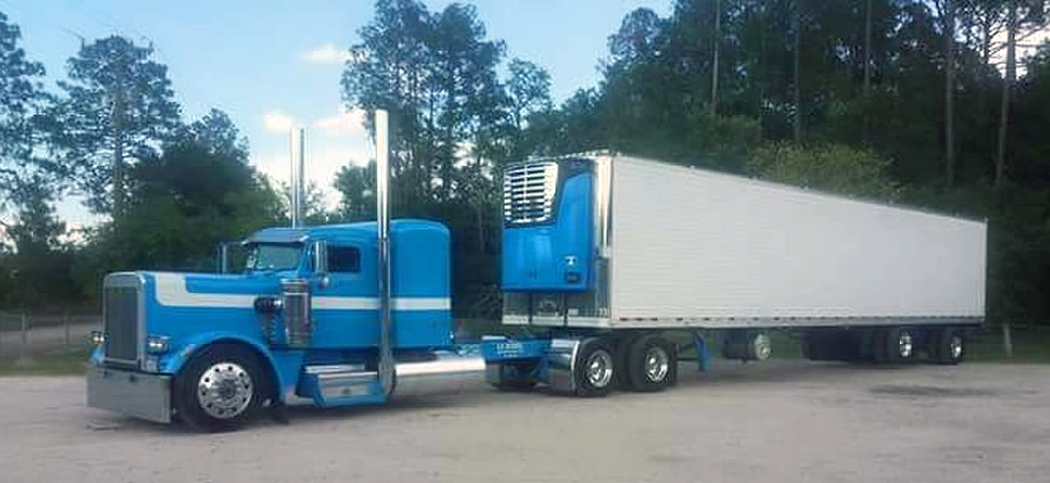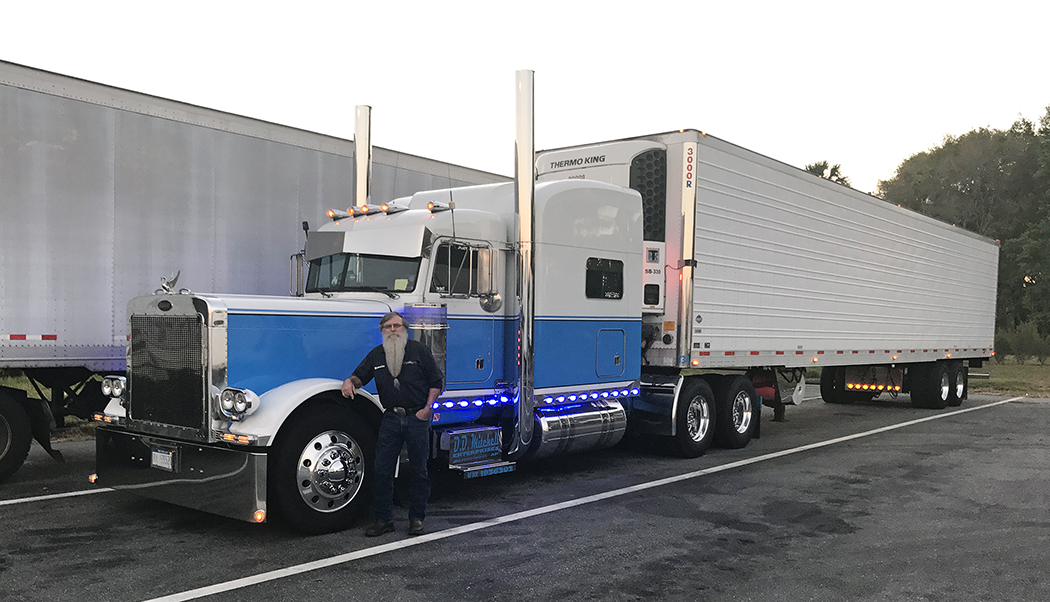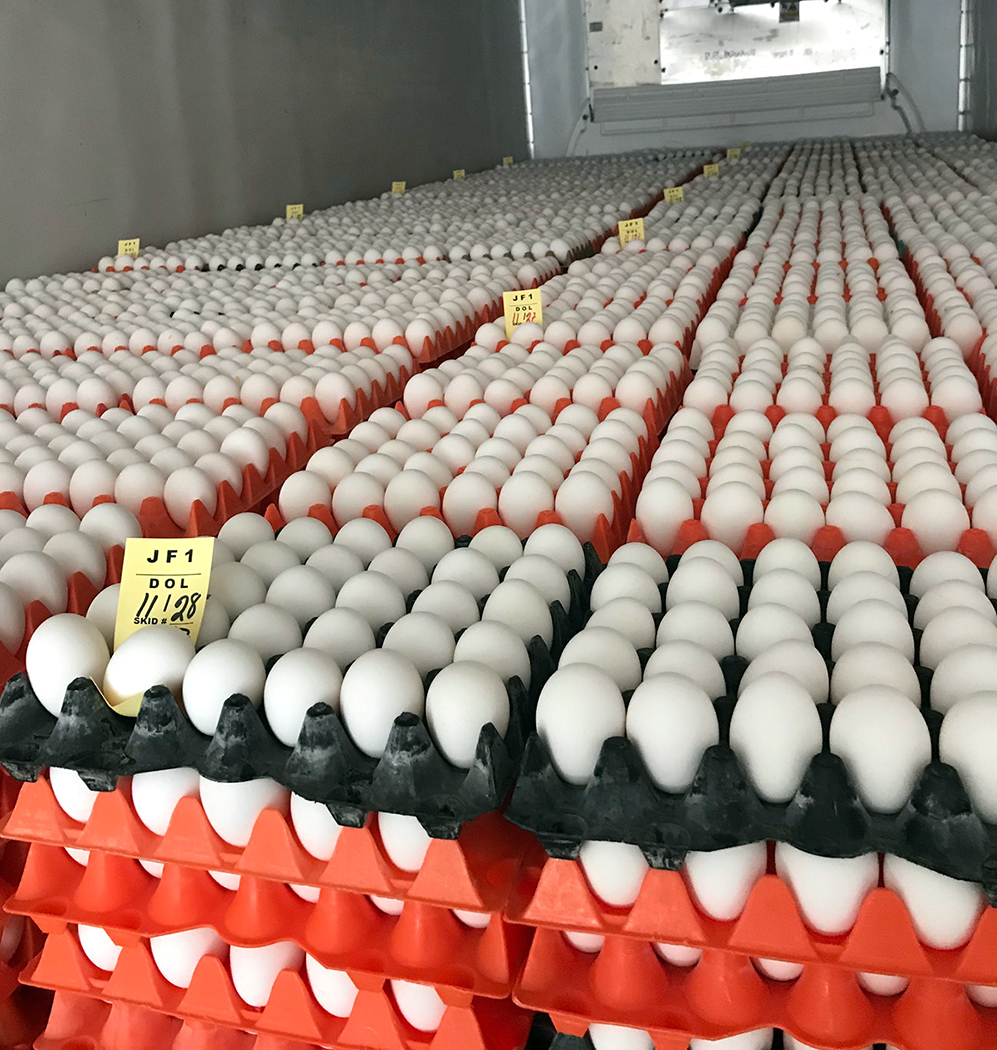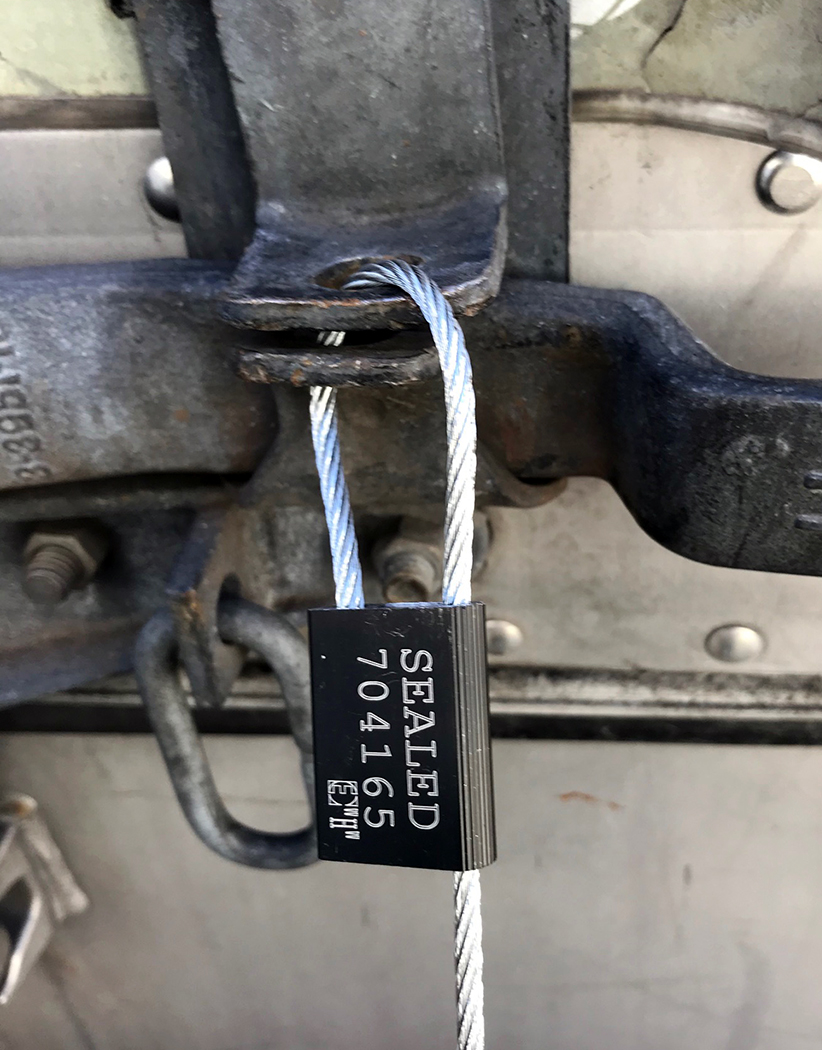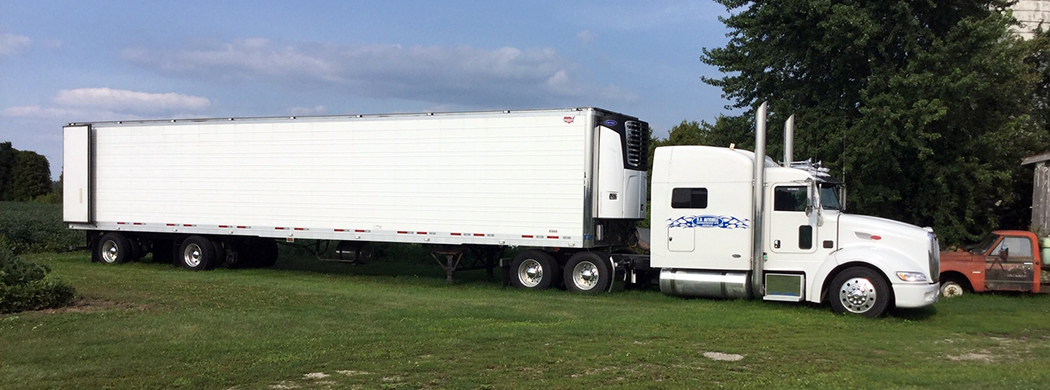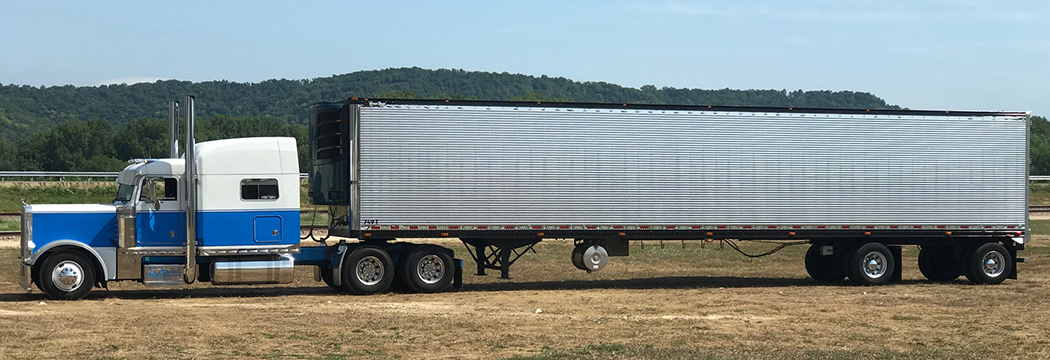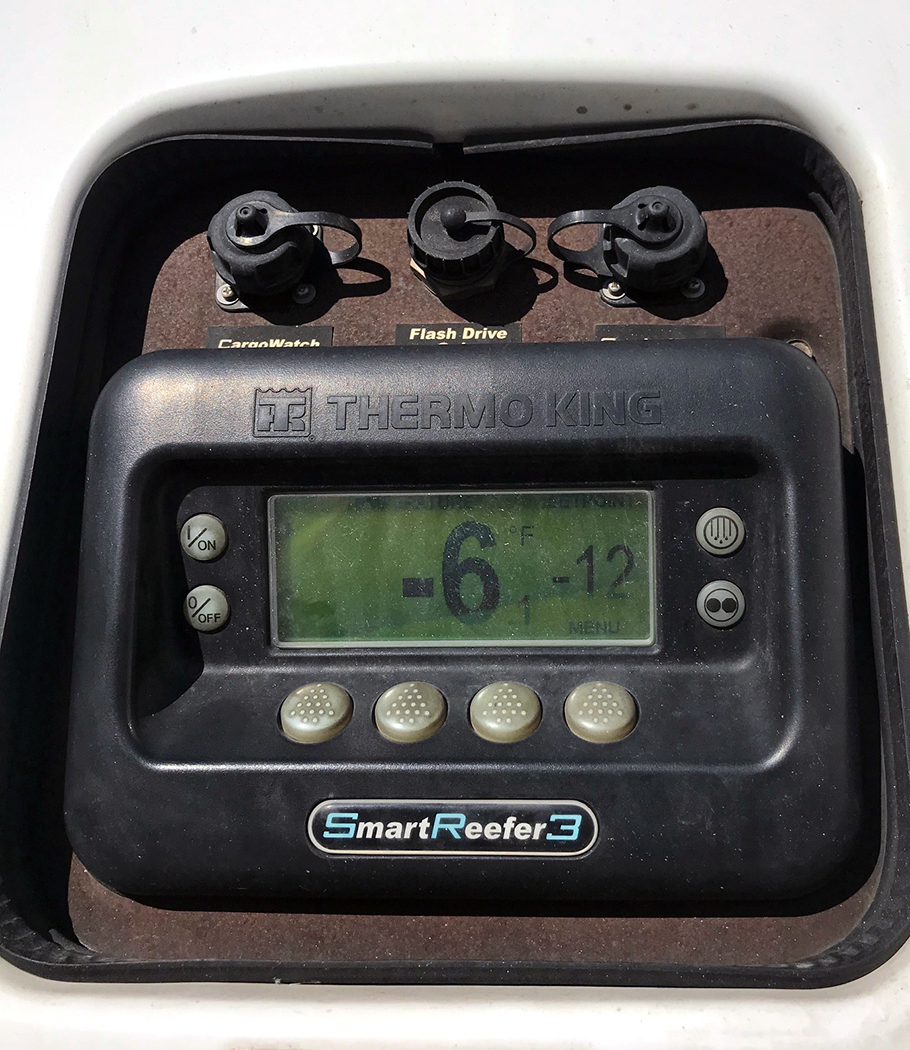It’s the new year and, just like that, we get to reset the clock and start over again. Well, whatever you do, don’t hit the 2020 restart button! I think most of us are ready to move on – I know I am. What’s next for you? This series of starts and stops and the disruption of freight cycles is causing havoc with most of us. There are some among us who will never recover from the revenue lost and the cost of equipment they can’t use.
I think we have all asked the same question: “What’s on the horizon for 2021?” More better paying freight on the wagon? How about shorter miles and more home time? Oh, I know, let’s change things up and do something a bit different this year – let’s go chicken hauling. You can always get a cheap reefer trailer and there is plenty of food stuff to move. Rumor has it, people will always have to eat. How hard can that reefer thing be anyway? Slam the dock, load the wagon, swing the doors closed, seal it up, and roll-on big riggers. That sounds like a good plan, at least for the winter months, anyway.
Maybe you are thinking no more tarping in the snow or pumping those doggone tankers off standing out in the wind freezing your back side might be nice. Heck, just having some place to go is a change for some of you. I have a friend who has been down most of the year with a car hauler. He tells me there are cars to move, but the competition is so strong they can’t cover the cost of expenses. I have another one who spent years moving stage shows and race cars. He tells me an even more bleak story. Fortunately, they were able to set some money aside over the years, but now it’s starting to run out, too.
Trucking seems to have been bypassed when the Paycheck Protection Program (PPP) money got passed around by the government in 2020. If you were an owner operator with one or two trucks, for the most part, they said, “Sorry about your luck.” This is a new year, and we want to work, even if it’s not doing the same thing we are used to. An old dog will have to learn new tricks if he wants to survive. Well, at least now you are thinking about the future.
It’s January, so it’s also time to get your new license plates and renew all your permits. Hold it! What states do you need? Where are you going to run? Have you given much thought to that? How heavy do you plan on hauling, and will you be required to change anything in relationship to whom you have been working with? For those of you who don’t live or operate in a state that allows multi-axle combinations, there are extra charges for the additional weight and length allowance. That is, if you want to run in them. Something as simple as Florida’s annual over length and weight permit will only cost $30 if you purchase it before you roll up on the scales. If not, you may pay $100 if you’re over 41 foot when you roll through that scale. I think we have all got dinged on that one.
Will the change of freight lanes or moving to a different type of trailer affect the cost of your insurance coverage? Are you needing to bump up the amount of coverage? Shoot, is your old insurance company still in business, or are they a victim of COVID-19, too? How about adding Reefer Breakdown coverage or additional Cargo coverage to satisfy high-cost loads such as seafood? A load of shellfish or rock lobster isn’t cheap if you have a freight claim. And don’t think it won’t happen to you, because it will, if you play the game long enough.
The easiest way to cheapen the cost of transportation is to claim damage against the carrier. Overages, shortages, and damage are a constant threat when you move refrigerated freight and dry food stuff. If you are a leased operator, you don’t stand a chance if the carrier is handling your money. They (the carrier) will settle a claim with the shipper or whomever is paying the freight rate and then take the loss out of your settlement check. Yes, they can do that (read the fine print in your contract) – even without your consent.
Some of you know I currently pull my own 53-foot refrigerated trailer coast-to-coast under my own authority. In 40+ years of trucking, I have moved just about every type of trailer you can name. Some I owned, others I leased, and a few were contracted through my lease. All of them came with the same responsibilities: load it legal, move it safely, and be certain to always satisfy the customer. Currently, I tote around a run-of-the-mill Utility R3000 reefer box with a Thermo King SB-330 unit. I’m convinced this is the best trailer I’ve ever owned. It may not be a beauty queen, but it sure is dependable.
Reliability is far more important to me than the cool factor. Even in the world of food hauling, you can find more than one kind of trailer. What is it that makes my trailer a “freezer trailer” and not just a “refrigerated” trailer? It has a larger compressor on the unit and extra insulation in the side walls and ceiling which gives me the ability to hold colder temperatures (-20 degrees) for a larger variety of freight. Why is this important to the average freight hauler? It may not be, however, it’s information that could help you to make a more informed choice when buying a trailer.
Not all trailers are created equal. Before you go out and shop for new or different equipment, have some idea what you need. If you only plan on moving produce locally or seasonally, then a smaller unit will work. There is still a running argument between 48-foot trailers and 53-footers. Sure, a 48-foot stainless spread can be purchased almost any place, but most of them are worn-out and overpriced. The cost of cool ain’t cheap, so try not to fall into that trap. I find if I search out a fleet style trailer, I can often buy much nicer and newer units, with fewer hours on them, for the same or less money. If you plan on backhauling frozen meat or some of the premium loads of fish and such from the coastal areas, then you may want to consider a stronger freezer unit and the biggest trailer available.
I’m not sure there is a best choice when purchasing a trailer. There are diehard drivers who swear by brand X or whichever brand they have. Over the years, I have had most brands of trailers and both Thermo King and Carrier units. Everyone wants to pull a stainless spread axle with all the shiny stuff flashing in the sunshine, but do you really need one? Most likely not – unless you are doing the LTL (less than loaded) thing. Then, the only reason is so you can maximize the weight distribution on the rear axles (40,000 pounds). I find a closed tandem with a 52-inch axle spacing is more to my liking since it is far more weight conscious and gives me the opportunity to haul heavier loads (net weight 44,500 pounds) with my old heavy conventional Peterbilt tractor, and I can still stay at or under 80,000 pounds.
If you are gonna run food products, it’s a good idea to know what you weigh and how much you can legally carry. Cat Scale will become your new best friend. Even if you have onboard axle scales, like the Right Weigh System, most of the shippers will not adjust the load without a certificate of weight. That means using a third-party platform scale. I used to haul grossly overloaded and disregarded the weight limits in most states until a family member was involved in a traffic accident and then embroiled in what turned into a multi-year extremely high value lawsuit. The cost of legal advice and the time lost is not worth the small amount of revenue you might gain.
In my family member’s case, the trailer was empty at the time of this accident, but when they went back over his record and found far too many weight violations, he didn’t have a leg to stand on. It didn’t turn out well. So, today, if it (the load) is over what I can legally haul, they remove the overage and reload it so I can axle it, or I leave the whole load with the shipper. There are no bragging rights for rolling fat (over legal limits).
We have all heard the horror stories of getting stopped at the scales when overloaded. Yes, I know there are still some outlaws on the highway pushing freight, but they are not crossing any scales – at least not on purpose. There is no need to be in violation of any laws when we put a reasonable amount of preparation into what we plan to do. Besides, who wants the added stress of worrying about rolling up on a portable scale and spending the rest of the day with Johnny Law? Not me! I like having a good safety rating. Plus, if I’m gonna waste time, I would rather do it at home with Aunt Barb at the cafe.
I’m not sure that I would go out and purchase any new equipment right now – not at least until the government gets a few more things sorted out (both locally and in our Nation’s capital). If you are not sure which way to go, renting a trailer is always an option. That way, if opportunity does come knocking, you will still be able to take advantage of it. Good luck on the coming year. May all your loads be light, the rates be high, and the wind be at your back. If not, grab an oar, because you’re in the same boat as the rest of us, 10-4!

